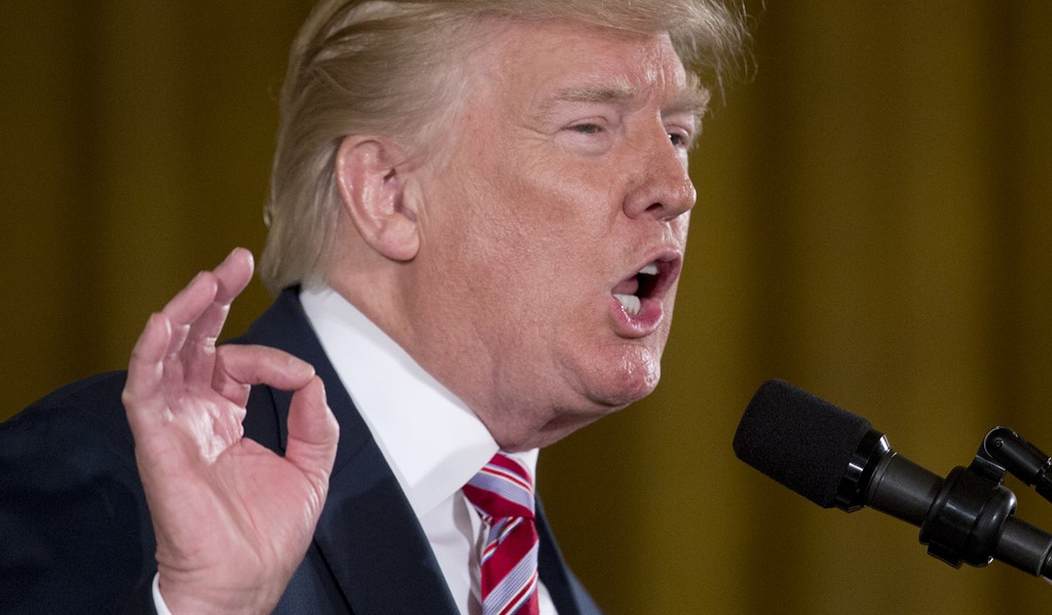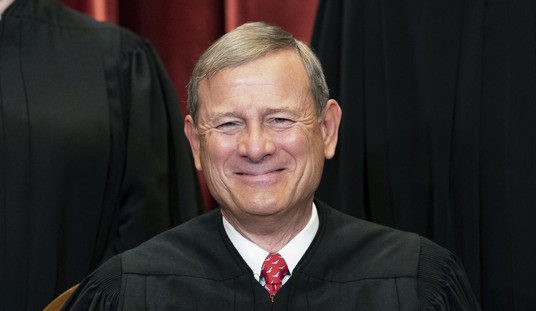For some voters, the judiciary was the only compelling reason to vote for Donald Trump over Hillary Clinton — or more accurately, to turn out at all. The White House understands that, and promised that Trump would accelerate appointments to scores of open positions on the federal bench, especially to the appellate courts. Today, Trump announced a slate of eleven judicial nominations, one of which will replace now-Supreme Court justice Neil Gorsuch in his old seat:
President Trump announced a new round of 11 judicial nominations Wednesday, including three nominees for high-profile federal appeals courts.
One of the nominees, Colorado Supreme Court Justice Allison H. Eid, is being tapped by the president to fill a vacancy on the 10th U.S. Circuit Court of Appeals created when Justice Neil Gorsuch was confirmed for the Supreme Court in April. …
Mr. Trump also is nominating U.S. District Court Judge Ralph R. Erickson of North Dakota for the 8th U.S. Circuit Court of Appeals, and University of Pennsylvania Law School professor Stephanos Bibas to serve on the 3rd U.S. Circuit Court of Appeals. Judge Erickson has served on the district court since 2003.
Expect these nominees to get a very warm reception from conservatives, especially the three appellate appointees — or at least one of them. Erickson is a Bush appointee from 2003, before the judiciary wars of 2005 broke out into the open. Eid and Bibas are resident “experts” at the Federalist Society, and have impressive resumés. Eid clerked for Supreme Court justice Clarence Thomas and has been on the Colorado Supreme Court for eleven years. Bibas clerked for Kennedy and worked briefly as an assistant US Attorney in the last two years of the Clinton administration before settling into an academic life and appellate litigation over the last 17 years, although his background might have some on the Right a wee bit nervous:
As director of Penn’s Supreme Court Clinic, Bibas litigates a wide range of Supreme Court cases. He and his co-counsel won a landmark victory in Padilla v. Kentucky in 2010, persuading the Court to recognize the right of noncitizen defendants to accurate information about deportation before they plead guilty. His academic work played a central role in the Supreme Court’s landmark case of Blakely v. Washington.
The potential political issue in Padilla is obvious, although it’s also obvious that the court reached the right decision — and, in terms of power balancing, a traditionally conservative one. Blakely had the effect of limiting how judges could apply the circumstances of a crime to federal sentencing guidelines, which later led to the Booker ruling that substantially limited the mandate in the sentencing guidelines in favor of a “reasonableness” criterion. If nothing else, this demonstrates the diversity of approaches at the Federalist Society, which (contrary to popular opinion) is not a knee-jerk doctrinaire-conservative activist group. Both Keith Ellison and Alan Dershowitz are listed among their “experts,” and have spoken at Federalist events. (And Orin Kerr loves this choice, too.)
Nonetheless, conservatives are already expressing their delight, including the Judicial Crisis Network. Carrie Severino sounds thrilled:
It’s a fantastic list, again drawing on his previous success from his Supreme Court list, by nominating Colorado Supreme Court Justice Allison Eid to fill Justice Gorsuch’s vacant seat on the U.S. Court of Appeals for the Tenth Circuit. Many of the nominees are well known in the conservative legal movement and have shown commitment to principled and evenhanded application of the law throughout their careers. For the many Americans whose top concern in November was electing a president who would put committed constitutionalists to the courts, this is another major victory.
Professor Jonathan Adler finds the number of academics remarkable:
President Trump continues to put forward superlative judicial nominees with sterling credentials and impressive intellects. It’s especially notable that President Trump continues to pick current and former academics for the appellate bench — more so than any recent President. This will only magnify the impact his nominees are likely to have on the federal courts.
If Trump keeps up this pace, he’ll ensure that conservatives get regular reminders of his utility to their cause. He’ll also need to make sure the Senate gets these nominations a lot faster than his earlier appointments, but that regular reminder will help keep his base together through some of the political kerfuffles erupting around him.








Join the conversation as a VIP Member